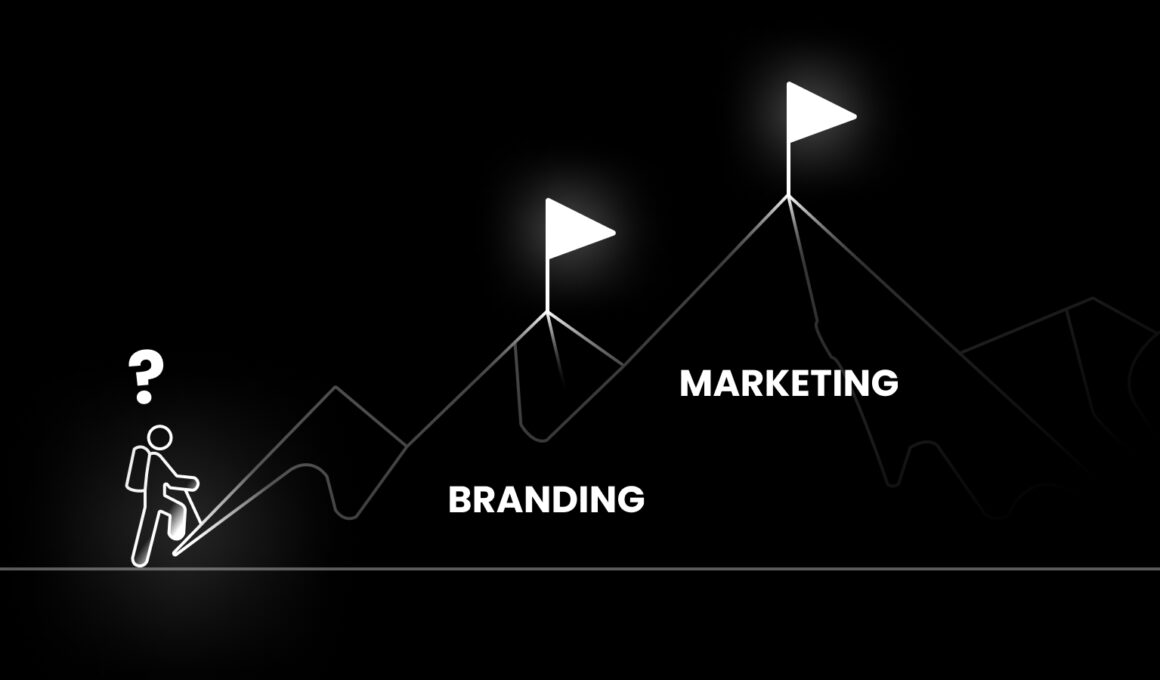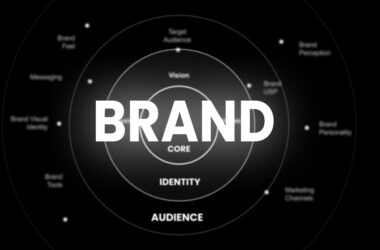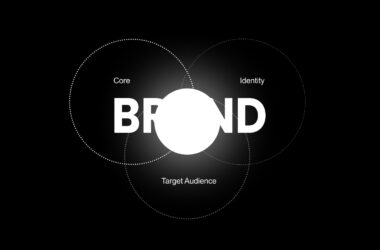What you’ll explore: Choosing a career that aligns with your interests, hobbies, and inbuilt skills is a recipe for personal and professional fulfilment. In the dynamic fields of branding and marketing, these factors play a crucial role in shaping your success. By leveraging your natural inclinations and acquiring additional skills, you can pave the way for a rewarding career journey. In this blog, we will explore how your interests, hobbies, and inbuilt skills can help you thrive in the worlds of branding and marketing, and we’ll provide guidance on acquiring the necessary skills to excel in each field.
Warning: ⚠️ DarkLions & DarkLionesses created this blog for those who are searching for their IKIGAI, not for money because you might already hear this from Baba Ranchoddas Chanchhad, “Success Ke Peeche Mat Bhaago, Excellence Ka Peecha Karo, Success Jhak Maarke Tumhare Peeche Ayegi.” And we made “Peso Ke Peeche Mat Bhago, Passion Ka Picha kro, Pesa Bohot Aajaega.”
And we agree it’s not easy to decide in any phase, so without any back-forth, let’s begin:
Interests, hobbies, and inbuilt skills that you have from your childhood needed in a branding career:
- Creativity: A strong creative mindset is crucial in the branding field. This includes the ability to generate innovative ideas, think outside the box, and come up with visually appealing concepts.
- Design: A keen eye for design and aesthetics is important in creating visually appealing brand assets such as logos, packaging, and marketing materials. Skills in graphic design, typography, and color theory can be cultivated through hobbies like drawing, painting, or digital design.
- Communication: Effective communication skills, both verbal and written, are essential in branding. The ability to convey ideas, tell stories, and articulate brand messages clearly is crucial in creating brand identities and marketing campaigns.
- Psychology: Understanding consumer behavior, market trends, and the psychology behind decision-making is valuable in branding. An interest in psychology, sociology, or anthropology can provide insights into consumer motivations and preferences.
- Research: Strong research skills are beneficial in branding to gather information about target audiences, competitors, and market trends. A curiosity-driven mindset and a love for exploring new topics can help in conducting thorough research.
- Strategic thinking: Developing a strategic mindset is important in branding to create cohesive brand strategies and positioning. This involves analyzing data, identifying target markets, and developing long-term plans to achieve branding objectives.
- Digital literacy: In today’s digital age, having a good understanding of digital platforms, social media, and online marketing techniques is essential in branding. Being familiar with digital tools, analytics, and trends can be advantageous.
- Storytelling: The ability to craft compelling narratives and tell stories that resonate with audiences is a valuable skill in branding. This can be fostered through activities like writing, theater, or public speaking.
- Collaboration: Working well in a team and collaborating with various stakeholders is crucial in the branding field. Being a good listener, open to feedback, and able to work effectively in a group setting is important for successful branding projects.
- Adaptability: The branding industry is constantly evolving, and being adaptable to change is crucial. Having a natural inclination to learn new things, staying updated with industry trends, and being flexible in approach can be advantageous.
It’s worth noting that while these interests, hobbies, and skills can contribute to a branding career, they can also be developed and refined over time through education, training, and practical experience.
The cherry on the top of this career path will be if you can acquire these skillsets for a branding career:
- Strategic Thinking: Developing a strategic mindset is vital in branding. It involves analyzing market trends, identifying target audiences, and creating comprehensive brand strategies to achieve business objectives.
- Marketing Knowledge: A solid understanding of marketing principles and consumer behaviour is important in branding. Knowledge of market research, positioning, competitive analysis, and brand management can contribute to effective brand development and communication.
- Research and Analysis: Strong research skills are essential in branding to gather insights about target markets, competitors, and industry trends. The ability to collect and analyze data, conduct market research, and interpret findings is valuable.
- Project Management: Being organized, detail-oriented, and capable of managing multiple projects simultaneously is advantageous in the branding industry. The ability to meet deadlines, coordinate resources, and work efficiently under pressure is highly valued.
- Interpersonal Skills: Building and maintaining relationships with clients, team members, and stakeholders is vital in branding. Good interpersonal skills, including active listening, empathy, collaboration, and negotiation, can contribute to successful brand development and client satisfaction.
- Consumer Behavior: A keen interest in understanding consumer psychology, motivations, and purchasing decisions can provide valuable insights for developing effective brand strategies and communication.
- Data Analysis: Proficiency in data analysis tools and techniques, such as Excel, statistical analysis, and data visualization, can help in drawing meaningful insights from data to drive data-informed branding decisions.
- Brand Identity Development: Having an eye for creating brand identities, including logos, visual elements, and brand guidelines, can contribute to building a strong and consistent brand image.
- Trend Forecasting: Keeping up with industry trends, cultural shifts, and emerging technologies is important in staying relevant and ensuring brand competitiveness. Developing a curiosity for trend forecasting can provide a competitive edge.
- Presentation Skills: The ability to present ideas, concepts, and strategies effectively is valuable in the branding field. Developing strong presentation skills, including public speaking, visual storytelling, and persuasive communication, can enhance professional success.
- Project Collaboration: Being skilled at collaborating with cross-functional teams, including designers, marketers, copywriters, and developers, is essential for bringing branding projects to life. Building effective working relationships and fostering teamwork is crucial.
- Brand Analytics: Familiarity with analytics tools and metrics, such as brand awareness, engagement, and conversion rates, can help in evaluating the effectiveness of branding initiatives and making data-driven decisions.
- Cultural Awareness: A deep understanding of diverse cultures, global perspectives, and social dynamics can be beneficial in developing inclusive and culturally relevant branding strategies that resonate with diverse audiences.
- Brand Management: Skills in brand monitoring, reputation management, and brand equity measurement can contribute to maintaining a strong and consistent brand image over time.
- Continuous Learning: Having a growth mindset and a passion for continuous learning and self-improvement is crucial in the fast-paced branding industry. Staying updated with industry trends, attending workshops, and seeking new knowledge can help in staying ahead.
Remember, it is just an overview, and while possessing these skills and interests can be advantageous, acquiring and refining them is a continuous process. Embracing lifelong learning and seeking opportunities to expand your skill set can pave the way for a successful branding career.
Interests, hobbies, and inbuilt skills that you have from your childhood needed in a marketing career:
- Interests:
- Creativity: Enjoy activities that involve thinking outside the box and coming up with unique ideas.Example: Engaging in art projects, writing stories, or designing posters.
- Communication: Showing an interest in expressing oneself clearly and effectively.Example: Participating in debates, public speaking, or joining a drama club.
- Psychology: Having a curiosity about human behavior and what motivates people. Example: Reading books on psychology, observing people’s actions and reactions, or discussing social dynamics with friends.
- Technology: Showing an affinity for digital tools and online platforms. Example: Enjoying video games, exploring new software or apps, or being an early adopter of technology.
- Hobbies:
- Writing: Engaging in activities that involve writing, such as keeping a journal or writing stories. Example: Starting a personal blog, contributing articles to school magazines, or participating in writing competitions.
- Graphic Design: Spending time creating visual content using design software or by hand. Example: Designing posters for school events, creating digital artwork, or editing photos.
- Social Media Management: Taking an interest in managing and growing online social media platforms. Example: Running a personal Instagram account, creating engaging content on YouTube, or managing a community forum.
- Public Speaking: Enjoy opportunities to speak in front of an audience, whether it’s in school or in extracurricular activities. Example: Participating in debate competitions, giving presentations, or hosting events.
- Inbuilt Skills:
- Analytical Thinking: Having a natural ability to analyze information, identify patterns, and make logical connections. Example: Solving puzzles, playing strategy games, or excelling in math or science subjects.
- Research Skills: Being skilled at gathering and evaluating information from various sources. Example: Conducting research for school projects, investigating topics of interest, or compiling data.
- Persuasion: Having a knack for convincing others and influencing their opinions or decisions. Example: Convincing friends to try new activities, negotiating with parents or teachers, or participating in sales competitions.
- Adaptability: Being open to change and quickly adjusting to new situations. Example: Easily adapting to new environments, participating in different extracurricular activities, or embracing new technologies.
Remember, while possessing these interests, hobbies, and inbuilt skills from childhood can be advantageous in a marketing career, it’s also possible to develop and acquire these qualities over time.
What other powers or skillsets you can acquire for a marketing career:
- Interests:
- Consumer Behavior: Developing an interest in understanding how consumers think, make decisions, and interact with brands.
- Market Trends: Keeping up with the latest industry trends, market research, and consumer insights.
- Digital Marketing: Developing an interest in online marketing strategies, social media platforms, and digital advertising.
- Branding: Having a fascination with creating and managing brand identities, positioning, and storytelling.
- Hobbies:
- Content Creation: Engaging in activities that involve creating compelling and relevant content, such as writing, photography, or videography.
- Data Analysis: Pursuing activities that involve working with data, analyzing trends, and deriving insights.
- Networking: Actively participating in networking events, industry conferences, and building connections with professionals in the field.
- Public Speaking: Practicing public speaking and presentation skills to effectively communicate marketing ideas and strategies.
- Inbuilt Skills:
- Communication: Developing strong verbal and written communication skills to convey ideas, collaborate with team members, and engage with clients.
- Creativity: Cultivating a creative mindset to generate innovative marketing concepts and campaigns.
- Analytical Thinking: Acquiring the ability to analyze data, interpret metrics, and make data-driven marketing decisions.
- Project Management: Developing skills in planning, organizing, and executing marketing campaigns within set timelines and budgets.
- Negotiation: Learning negotiation skills to collaborate with vendors, partners, and stakeholders in securing beneficial marketing deals.
- Adaptability: Cultivating the ability to adapt to changing market dynamics, consumer preferences, and emerging technologies.
Remember, while these interests, hobbies, and inbuilt skills are valuable in a marketing career, it’s important to continually learn and adapt as the marketing landscape evolves. Continuous professional development and staying updated with industry trends are key to thriving in the field of marketing.
PS: Stay tuned, this is not the end. In next blog you will explore different career path/map/plan in branding & marketing.






